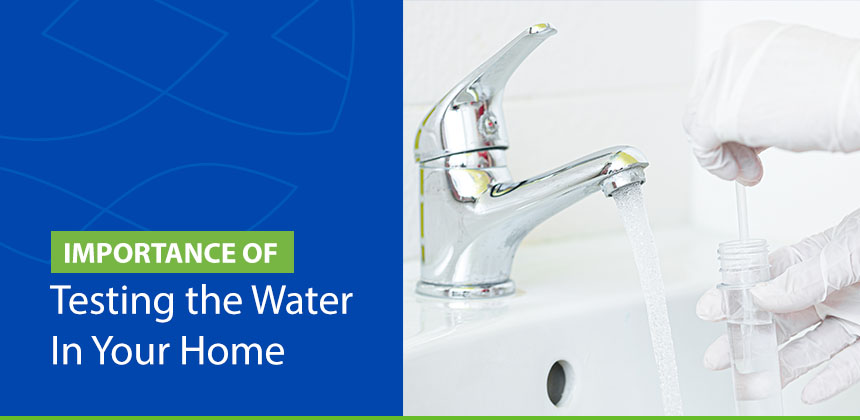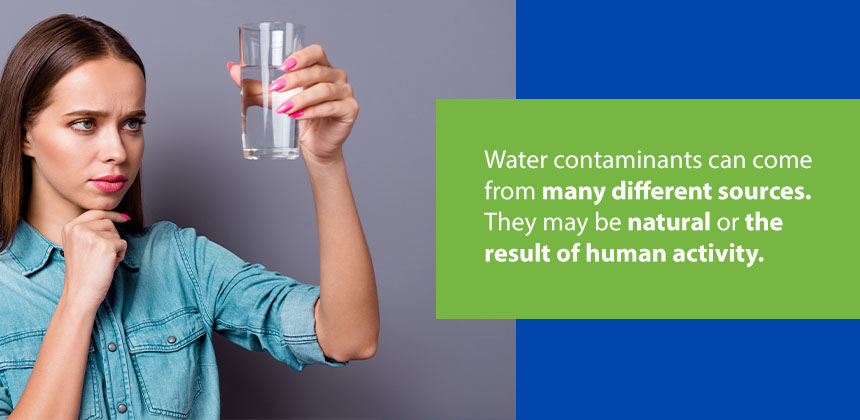

You might assume your home’s tap water is safe to drink and use, but that’s not always the case. The tiny molecules and chemicals that can pose a safety risk are often impossible to see, taste, or smell. You can never underestimate the importance of water quality in your home. Be sure to schedule regular water quality testing.
Home water tests ensure your water is safe and healthy to use for everyday tasks, like drinking, washing dishes, and bathing. Tests measure for:
Your home’s drinking water could contain several different contaminants, many of which pose a health risk. Since many contaminants are impossible to detect, you might not notice them until they’ve already made you unwell. Common contaminants include:
Water tests also measure other contaminants, such as iron, barium, cadmium, fluoride, radium, and uranium. In high concentrations, any of these contaminants can be hazardous to human health.
Water contaminants can come from many different sources. They may be natural or the result of human activity. According to the Centers for Disease Control and Prevention (CDC), possible sources include:

The importance of water testing is multifaceted. Several reasons might compel you to test your home’s water, including the following.
The number one reason to perform a water test is safety. Water tests ensure your drinking water is free from harmful contaminants. You might not ever be able to detect contaminants without a test, as many are microscopic, tasteless, and colorless. In some cases, you may not even know your water is poisoning your body until it’s too late to reverse the effects.
Water testing can help you identify sources of unfavorable tastes and smells. For instance, the presence of sulfur can cause your water to smell like rotten eggs, which is less than appealing. A water test will help you decide on the best water filtration system for your home. If you’re looking for a way to make your home’s water taste or smell better, a test is a good place to start.
Another reason to test your water is to learn if it’s damaging your plumbing system. For instance, the corrosive quality of water with an acidic pH can wear away your pipes. Testing and treating your home’s water can increase the life span of your home’s plumbing.
Regular water tests will alert you to any changes in your drinking water. They’ll help you determine the effectiveness of your treatment solutions over time. While your water may not look, taste, or smell any different, it could contain different contaminants from one test to the next.
How often you should test your water depends on your water source. The importance of testing water is greater if your water comes from a groundwater source, such as a well. You should also test more often if you drink from a private source. Public water companies have to send out notices if their water contains potentially harmful contaminants beyond national standards. However, if you drink from a private source, the responsibility to measure contaminants is yours alone.
As a rule of thumb, you should test your home’s water at least once a year. Testing should be more frequent if you use a private water source. In addition, you should test your water for nitrates if you are expecting a child and while your infant is young.
It’s best to schedule an in-home water test from a professional. A professional will identify all possible issues, ensuring your water is completely safe. They’ll also suggest the best solution to address any concerns.
Testing your home’s water quality should be part of your yearly home maintenance schedule. Water tests check for potentially harmful contaminants, such as bacteria, viruses, and mineral or chemical concentrations. Regular water quality testing will help ensure your family’s safety. In addition, it will identify factors affecting taste and smell so your water provides the best possible experience. It’ll also help you monitor changes and keep your plumbing in top shape.
If your water is due for a test, consider Shipley Energy. At Shipley Energy, we’re happy to perform free water tests to address any possible concerns. Given any issues, we’ll help you choose and implement a long-lasting solution. Learn more about water testing and contact Shipley Energy for home water testing and treatment.
